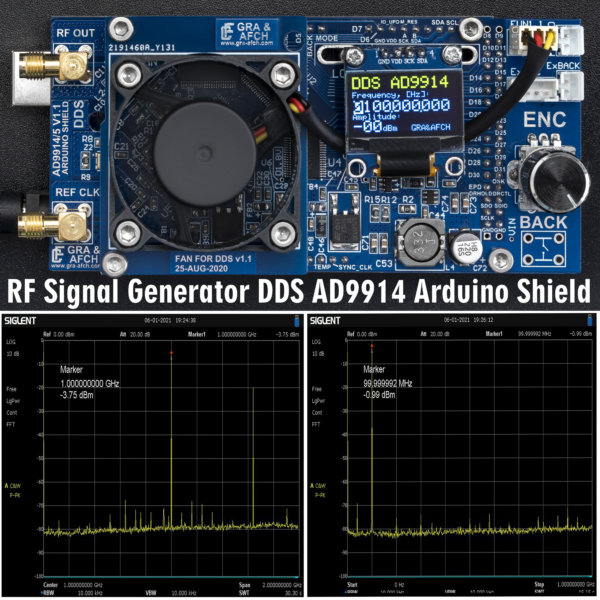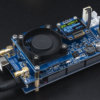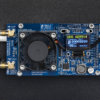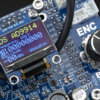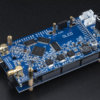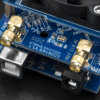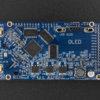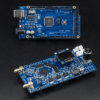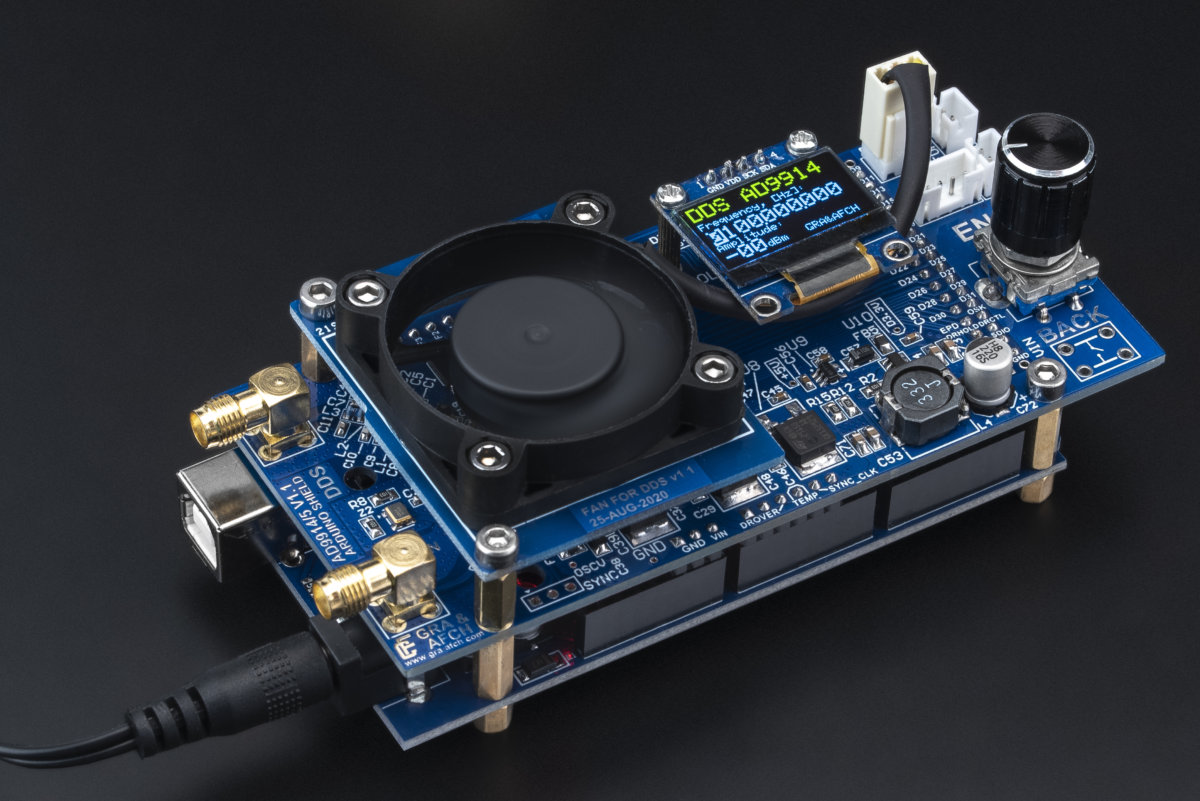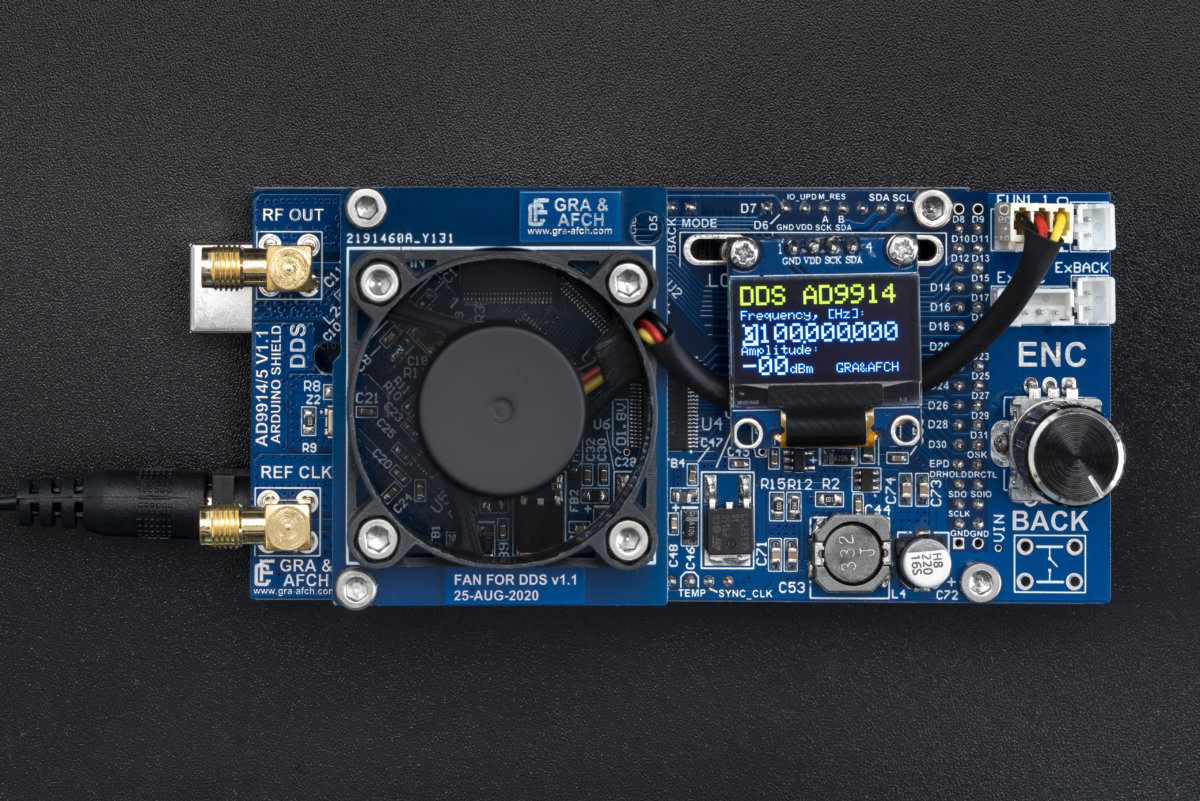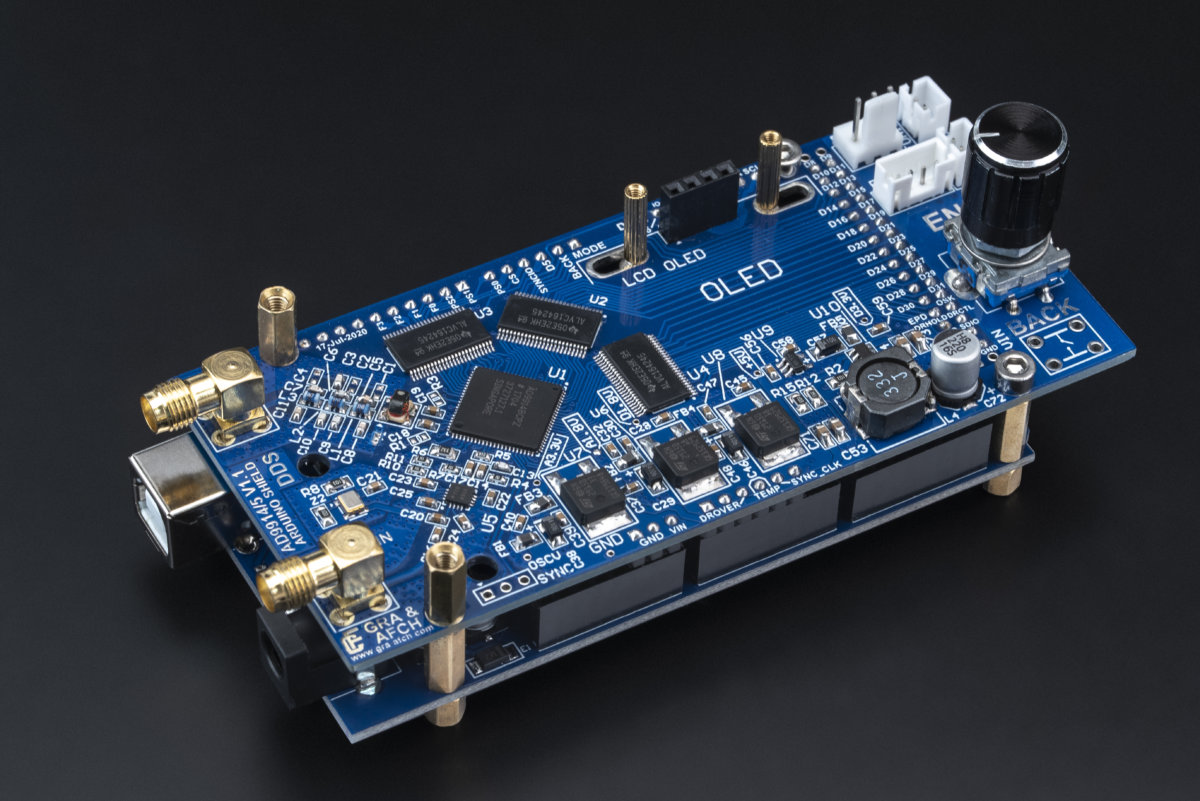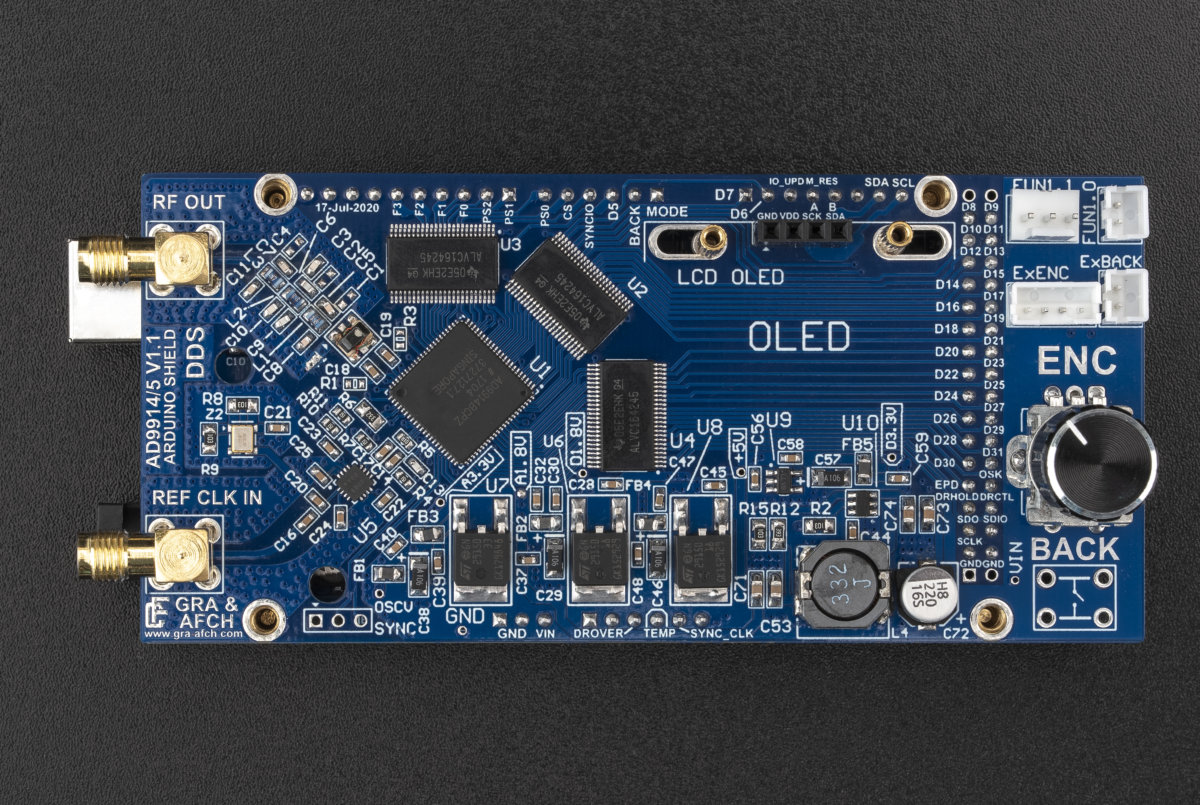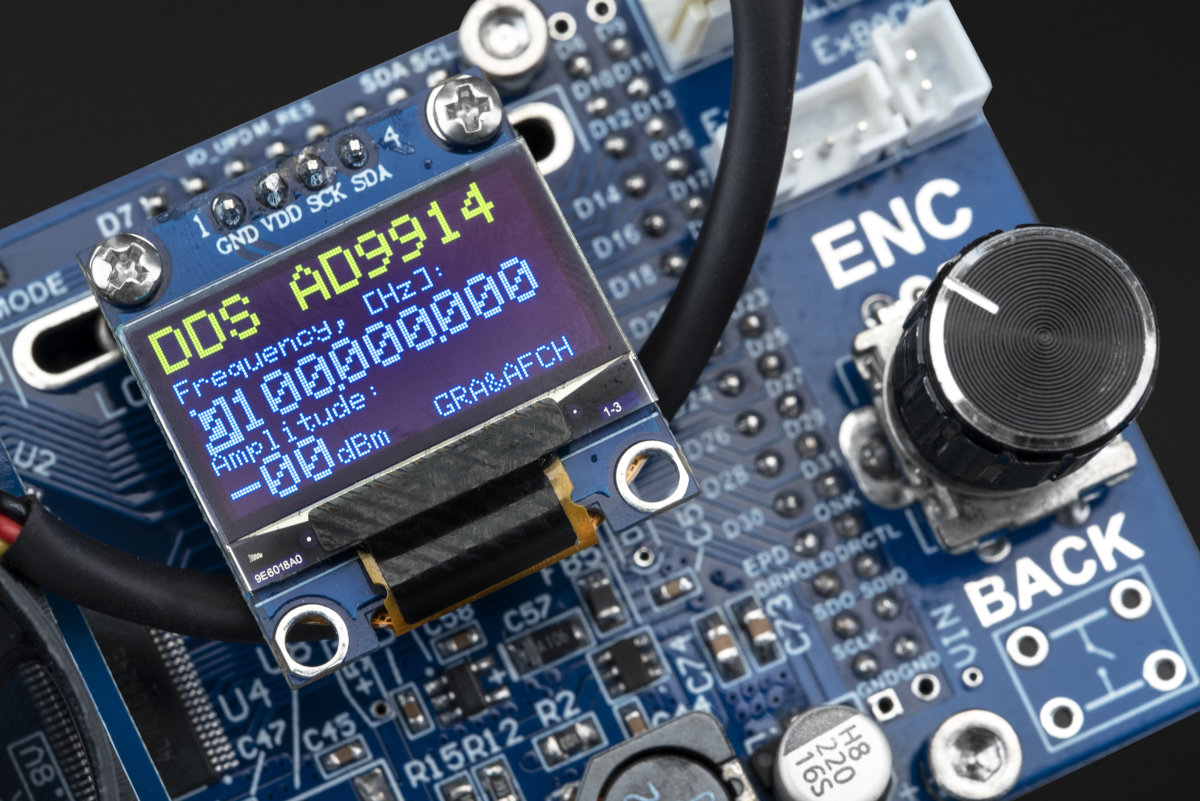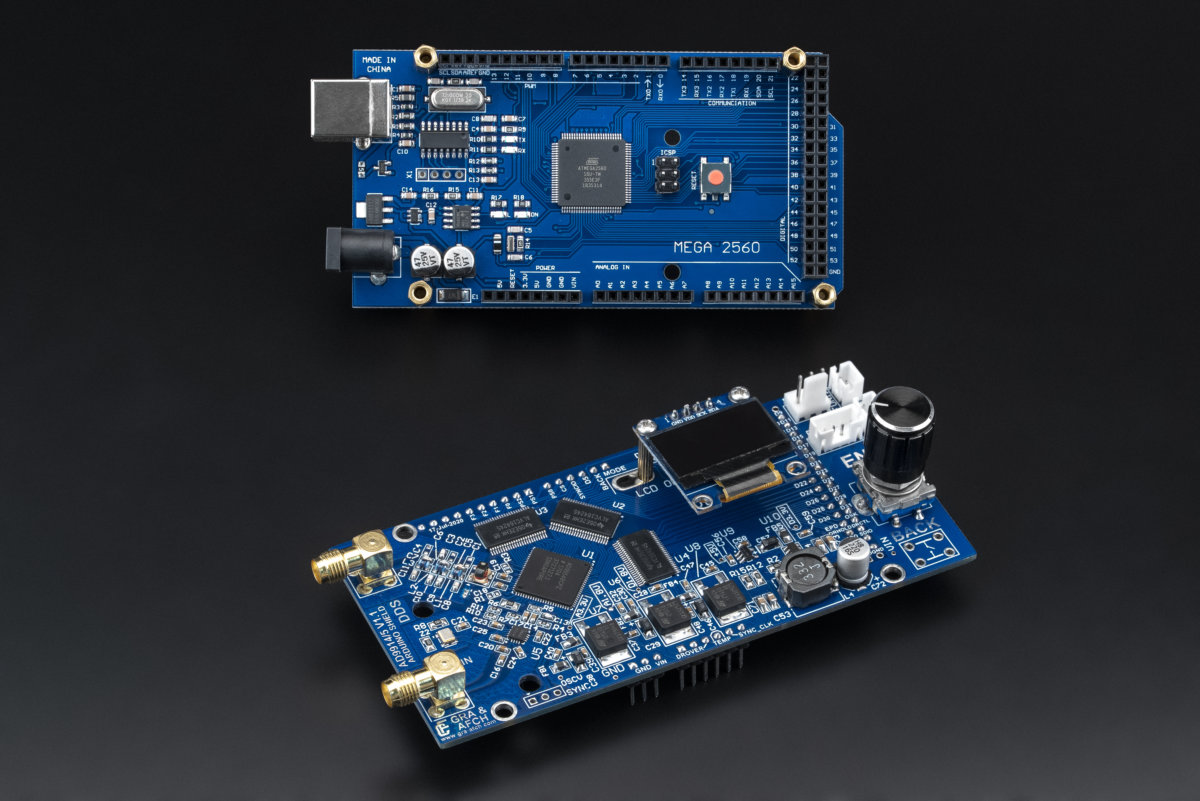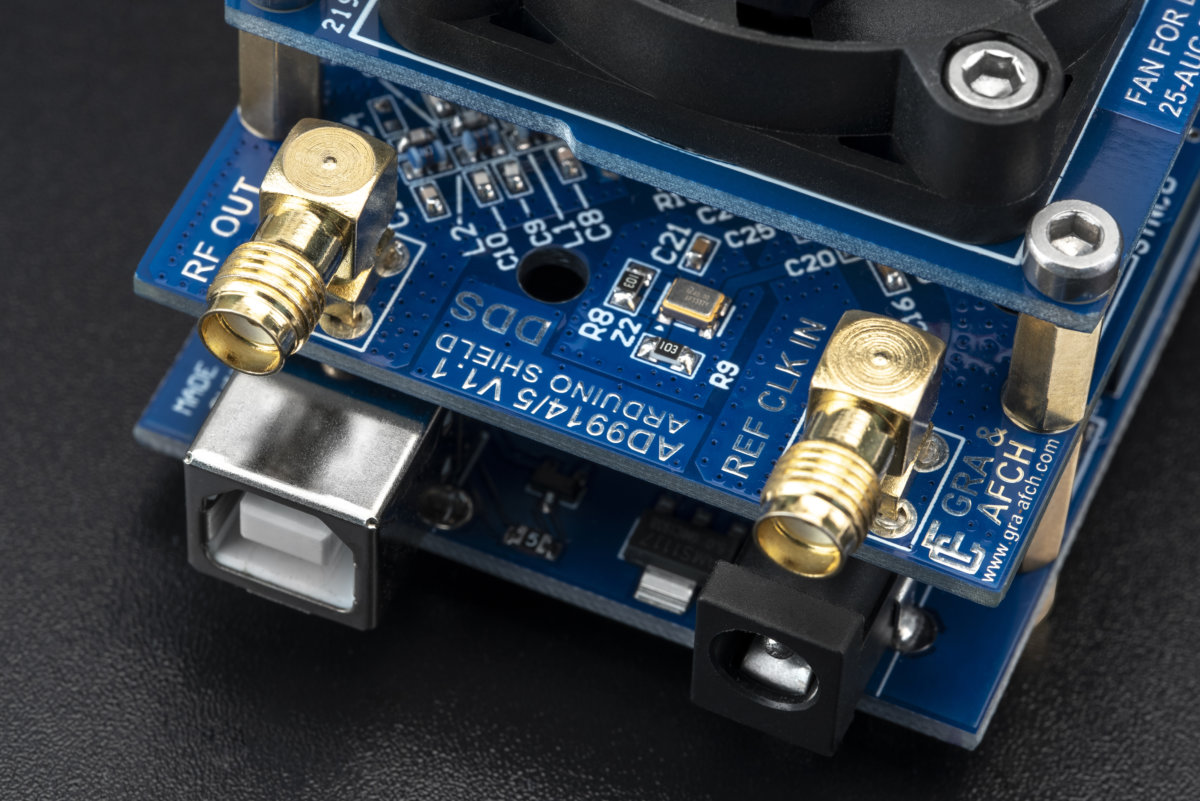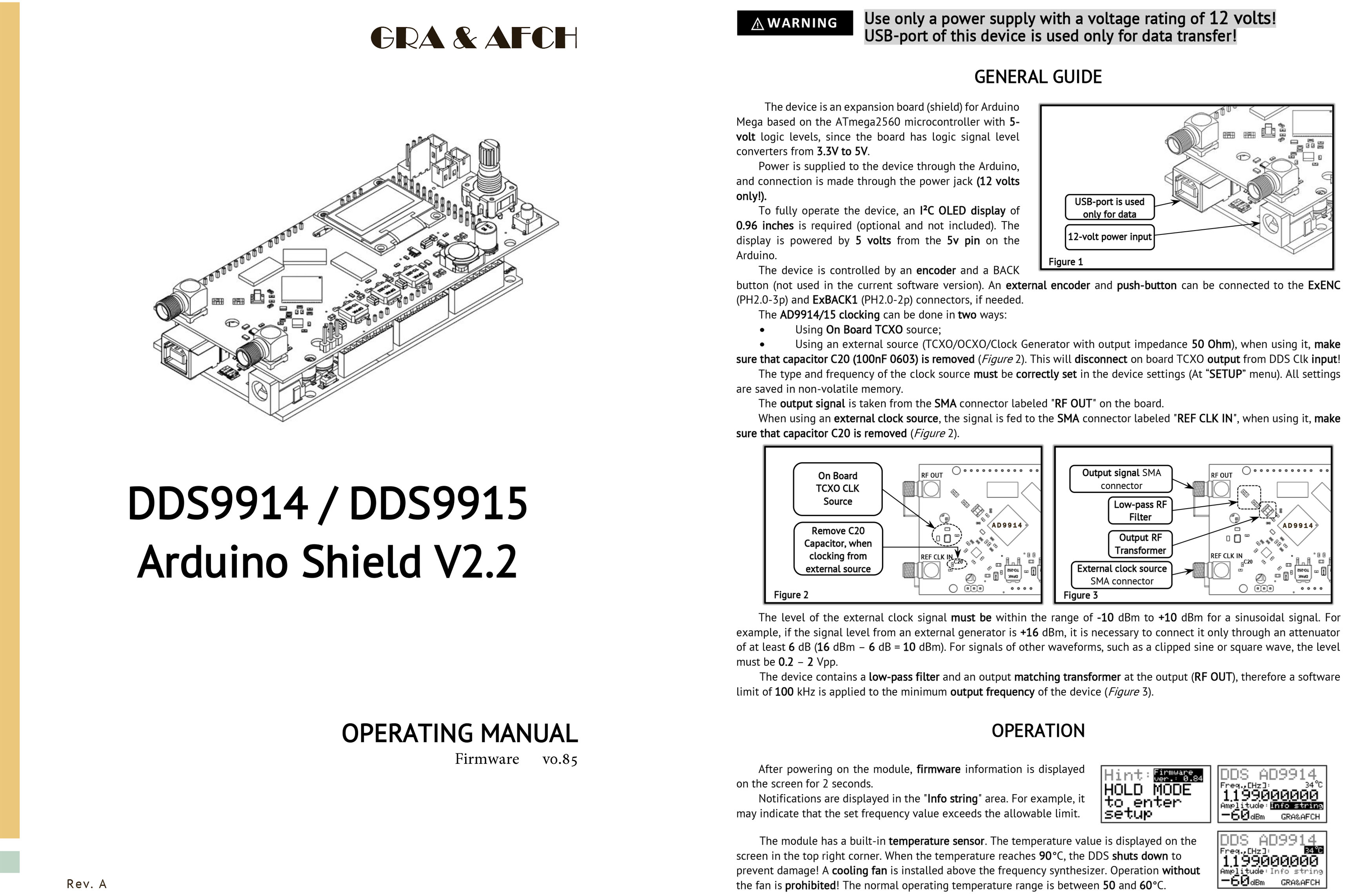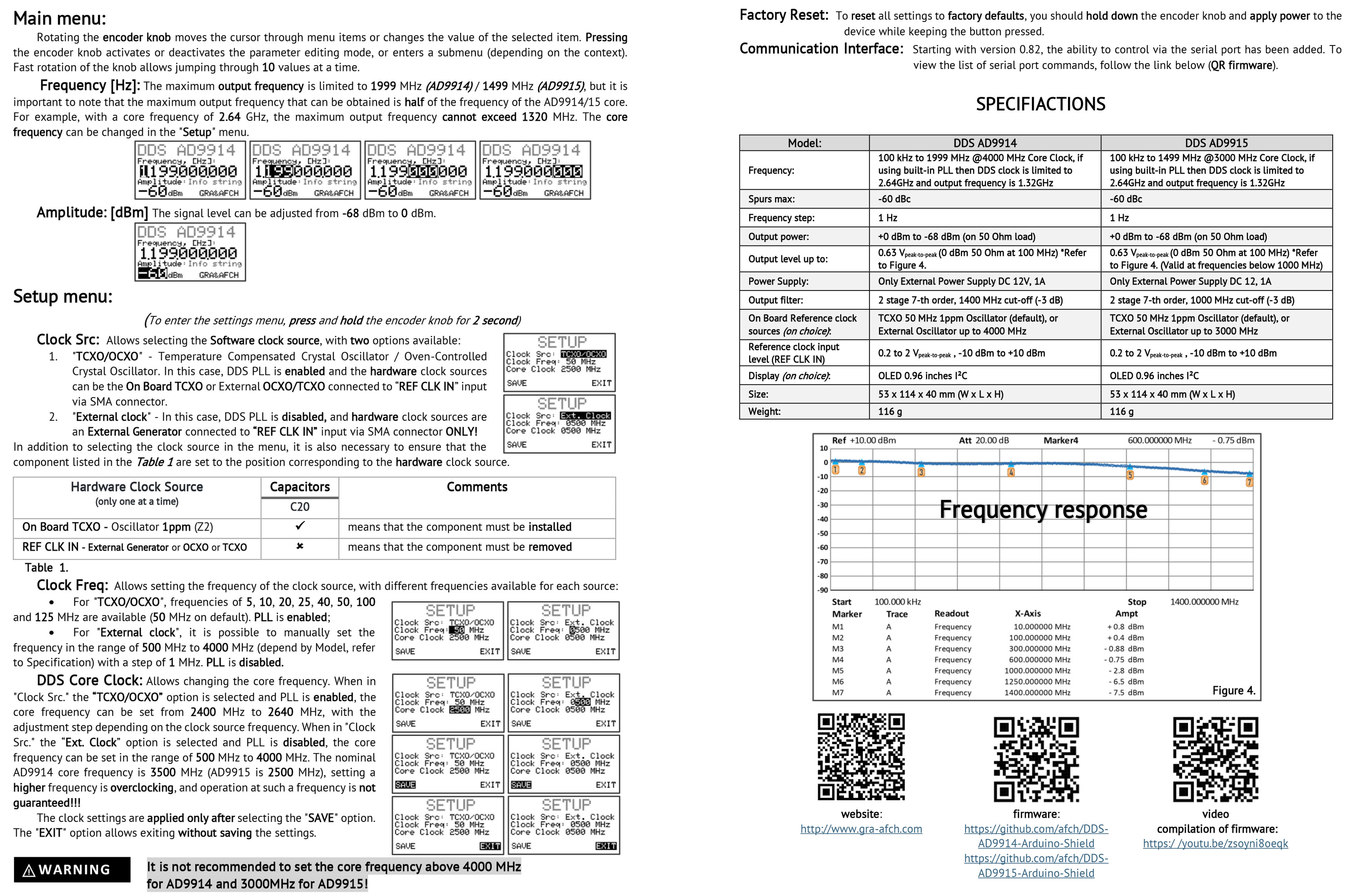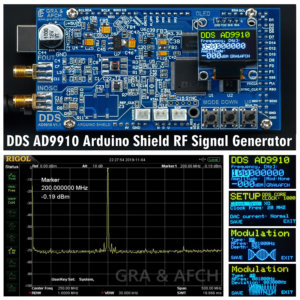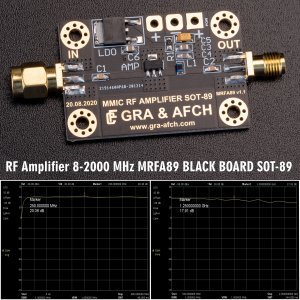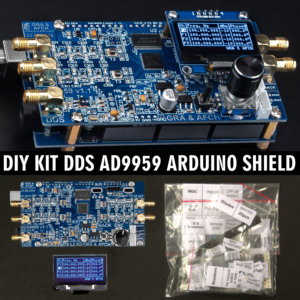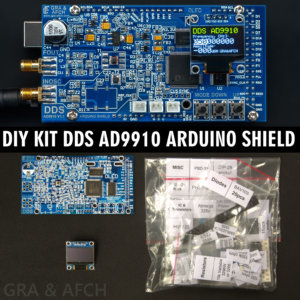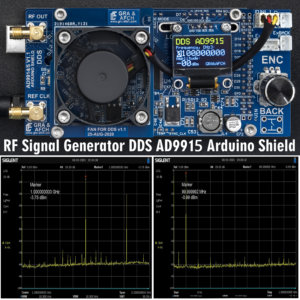DDS AD9914 Arduino Shield RF Signal Generator [1.4GHz @3.5GHz Core Clock, Low Spurs, Low Harmonic]
Units Sold: 39
DDS (Direct Digital Synthesis) Analog Devices AD9914
Arduino Shield Easy connection to Arduino MEGA 2560 without additional wires and converters
All functions of the DDS AD9914 are brought to the contacts of the Arduino MEGA
With this you can fully reveal all the capabilities of the DDS AD9914 Shield
PCB, Design, Schematics, Case and Software made by GRA & AFCH
$699.95 – $904.95
DDS AD9914 Arduino RF Signal Generator Shield
DDS (Direct Digital Synthesis) Analog Devices AD9914 Arduino Shield by GRA & AFCH
Easy connection to Arduino MEGA 2560 without additional wires and converters
All functions of the DDS AD9914 are brought to the contacts of the Arduino MEGA
With this you can fully reveal all the capabilities of the DDS AD9914 Shield
Opensource Software available on our GitHub repository: https://github.com/afch/DDS-AD9914-Arduino-Shield
Listing includes:
- RF AD DDS Unit [AD9914 Shield Board]
- Display [OLED] (0,94″ or 1,54″) (optional, choose in selector)
- Clock Source (TCXO, EGEN) (optional, choose in selector)
- Arduino Control Board [MEGA 2560] (optional, choose in selector)
- Power Supply [DC 12V/1A] [US, EU, UK, AU] [AC plug] (optional, choose in selector)
- Operating Manual
we cogently recommend using
Low-Pass Filters and RF Amplifiers
with our DDS AD RF Shields:
RF Amplifier 8-2000 MHz, GAIN = 20 dB, P = +20 dBm MMIC MRFA89 SOT-89 [GOLD PLATED]
Custom design:
We are offering custom design development for this Unit for 1200$
This comes with condition that at least 10 pieces of them will be ordered then
If you have ANY questions, PLEASE ASK us.
AD9914 vs AD9915 differences:
- DDS AD9914 Shield Unit nominally clocked at higher than 3.5 GHz and can be overclocked to 4 GHz
- DDS AD9915 Shield Unit nominally clocked at 2.5 GHz and can be overclocked to 3 GHz
Key Benefits:
- Convenient and fast control with an encoder.
- Core overclocking up to 4 GHz (external reference clocking).
- Low harmonics.
- An output RF transformer is used for the correct operation of the current mirror.
- Small spurs.
- 4 layer board. Signal lines TOP and Bottom, inner layers Ground and Power.
- Low Noise LDO Stabilizers.
- Separate power supply for all analog and digital lines (1.8V and 3.3V), 5 pcs IC voltage stabilizers are used. Additionally, there is an RF Ferrite bead interchange.
- High-speed decoupling Level converter and TTL 5V matching.
- Temperature sensor.
- Active fan cooling (due to the high heat dissipation of the AD9914, we had to install a fan).
Types of possible reference oscillators (choose one of them in the selector):
- TCXO – 50MHz (Supports 5 – 125 MHz) 1 ppm external oscillator PLL up to 2600 MHz. (Support OCXO via SMA REF CLK IN)
- REF CLK IN – external reference clock input, up to 4000 MHz (this source is NOT INCLUDED).
Features:
- At the output is a transformer installed to reduce even harmonics.
- Additionally balancing transformer is used for TCXO and REF CLK IN options.
- Easy to connect OLED display.
- Device control only with one encoder.
- The synthesizer is capable to generate sine wave.
- The software allows you to select and configure the frequency of the clock generator through the user menu (without the need to recompile the program).
- Any settings can be stored in non-volatile EEPROM memory (located at Arduino Mega).
- Basic settings are applied and saved automatically.
- This shield support core overclocking the AD9914 core up to 4000 MHz.
- DDS AD9914 Shield has ability to generate a signal up to 1700 MHz with a core overclocking up to 4000 MHz (for frequencies above 1400 MHz output filter needs replacement).
Phase Noise
This parameter is very important and interesting for those who buy DDS.
Since the intrinsic phase noise of DDS is obviously less than that of PLL generators, the final value is highly dependent on the clock source. In order to achieve the values stated in the datasheet on AD9914, when designing our DDS AD9914 Arduino Shield, we strictly adhered to all recommendations from Analog Devices: PCB layout in 4 layers, separate power supply of all 4 power lines (3.3 V digital, 3.3 V analog, 1.8 V digital, and 1.8 V analog). Therefore, when buying our DDS AD9914 Arduino Shield, You can focus on the data from the datasheet on the AD9914.
Figure 19 shows the noise level when using the built-in PLL in DDS:
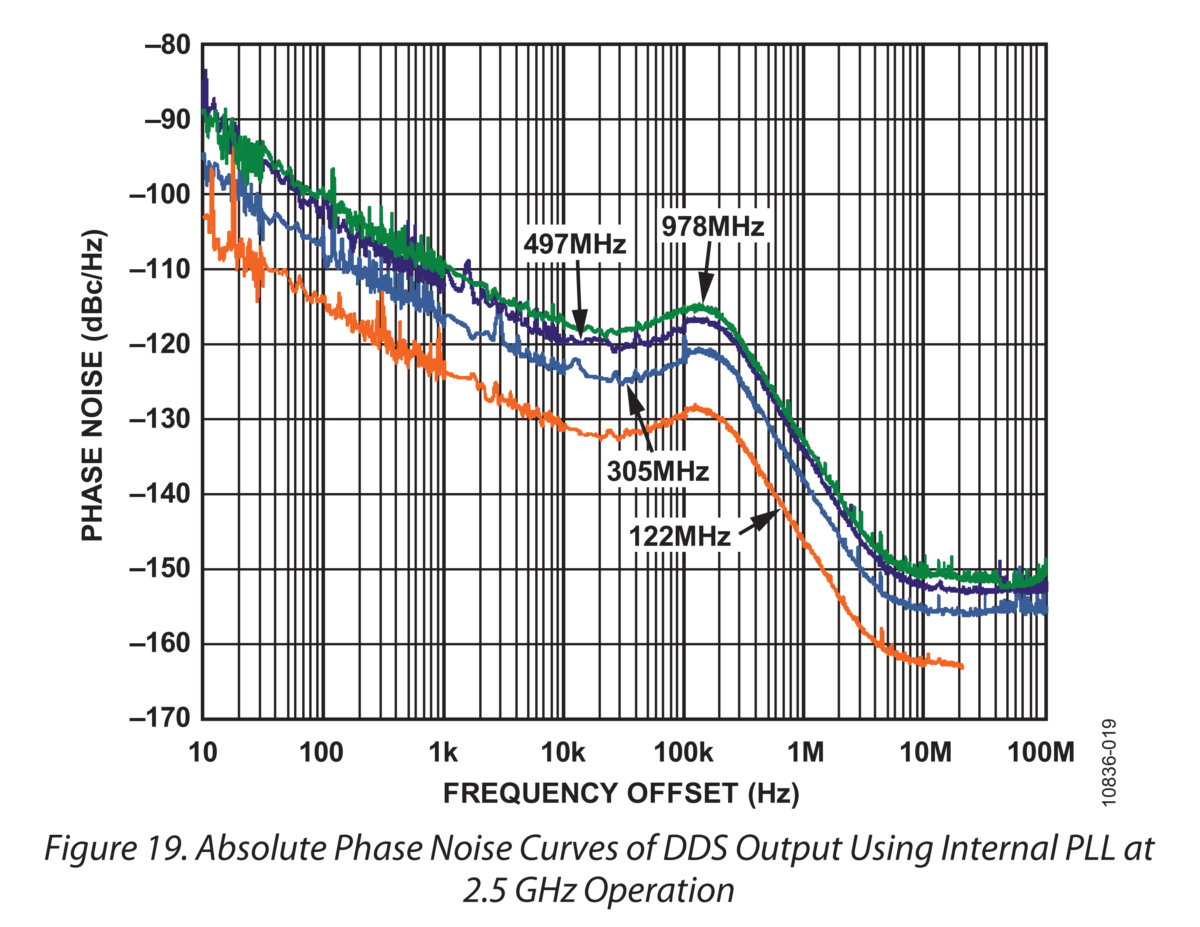
And figure 19 shows the noise level when using an external reference clock 3500 MHZ, with the PLL off:
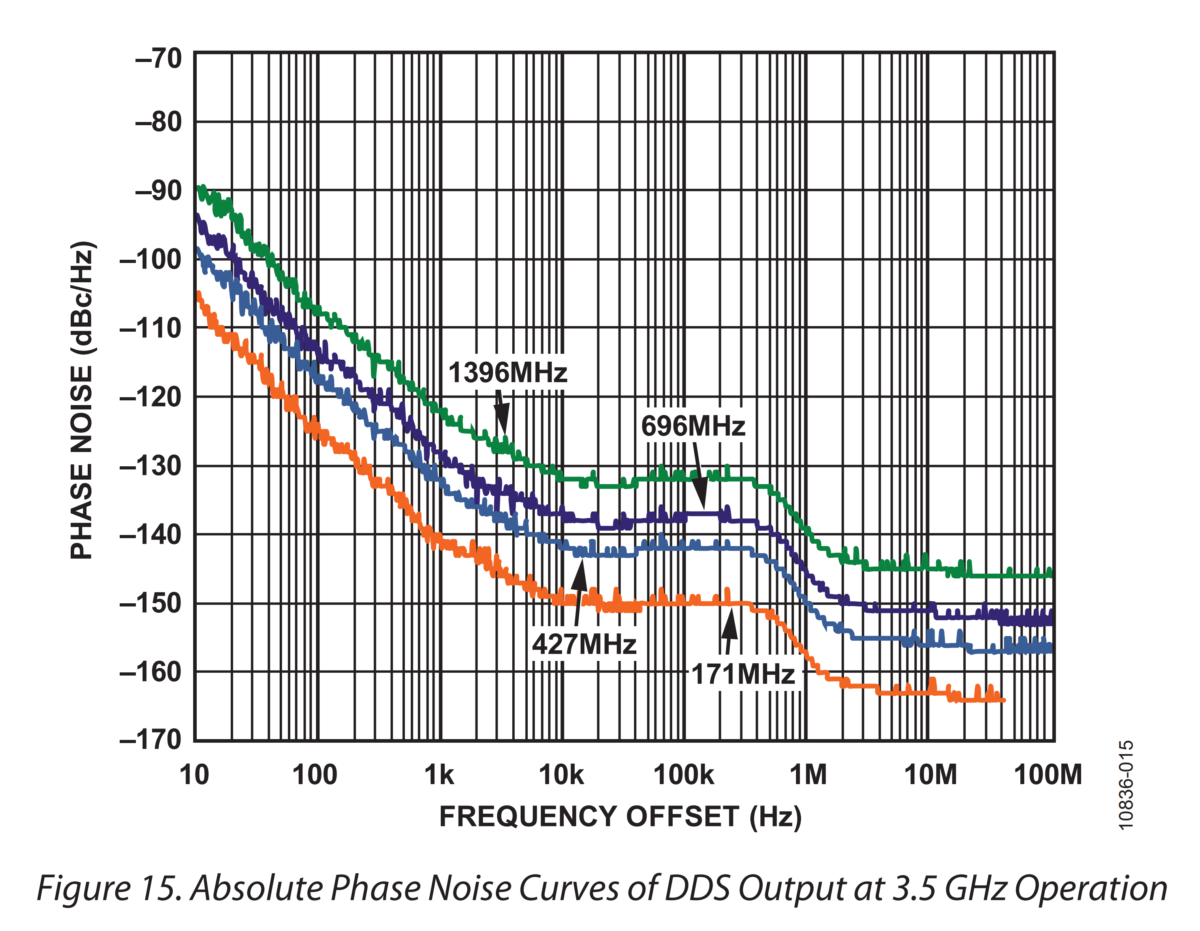
We realize that direct comparison of these graphs is incorrect, but nevertheless, on average, when offset from the carrier frequency by 10 kHz and using an external generator, the noise level is 20 dB less than when using the built-in PLL. But do not forget that in order to achieve such results, increased requirements are put forward to the external generator.
OLED Display Menus:
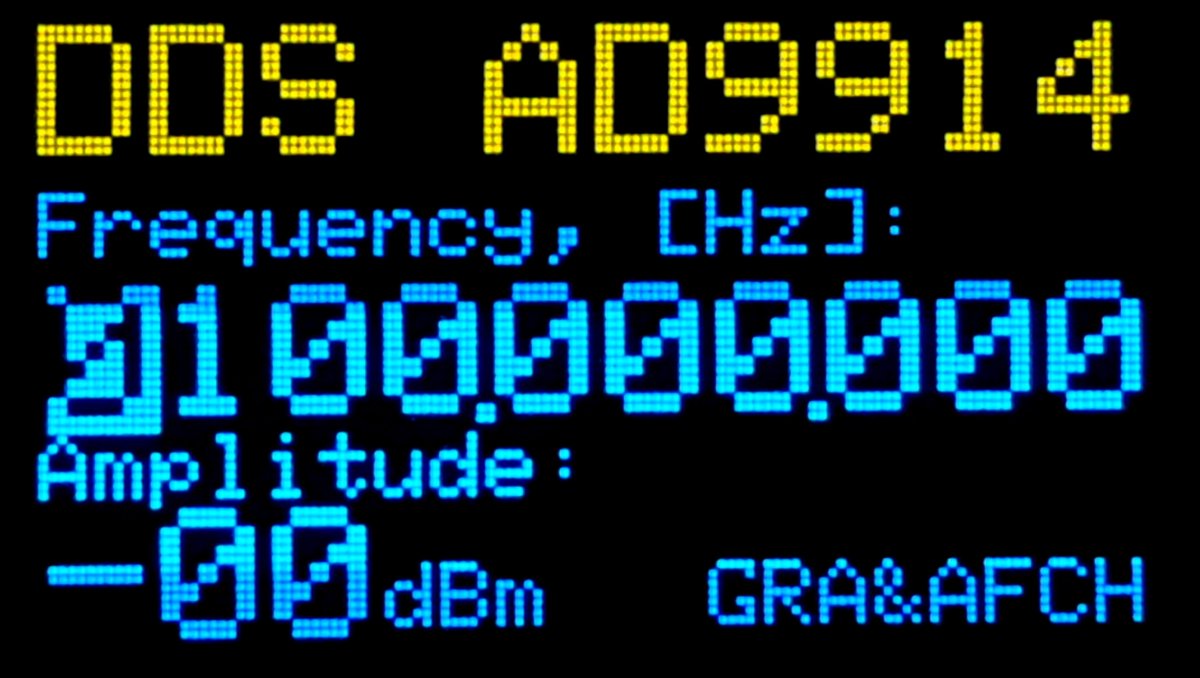
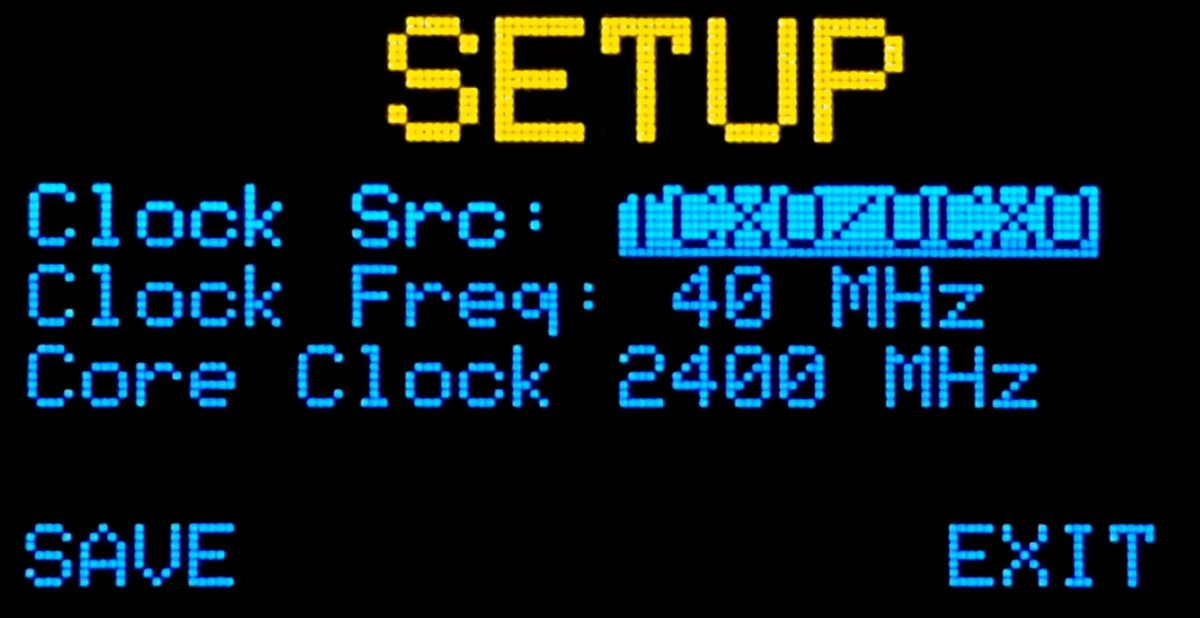
If you have ANY questions, PLEASE ASK us.
Specifications:
| Frequency: | 100 kHz – 1999 MHz @4000 MHz Core Clock, if using built-in PLL then DDS clock is limited to 2.64GHz and output frequency is 1.32GHz |
| Spurs max: | -60 dBc |
| Frequency step: | 1 Hz |
| Output power: | 0 dBm to -68 dBm (on 50 Ohm load) |
| Output level up to: | 0.63 Vpeak-to-peak (at 0dBm) |
| Power Supply: | Only External Power Supply 12V DC 1A |
| Output filter: | Ceramic Filter 2 Stage 7-th order (or On request, a ceramic filter with a different cutoff frequency and with lower losses can be installed) |
| Reference clock sources (on choice): | TCXO 50 MHz 1ppm Oscillator, or External Oscillator up to 4000 MHz |
| Size: | 53.26 x 114 x 40mm |
Serial Port Commands:
List of Serial Port Commands:
Starting with version 1.02, the ability to control via the serial port has been added.
F – Set Frequency in Hz (100000 – CoreFrequency/2)
P – Set Output Power in dBm (-68 – 0)
M – Get Model
E – Enable Output
D – Disable Output
V – Get Firmware Version
h – Help
; – Commands Separator
Example:
F100000;P-2
Set Frequency to 100 kHz, and Output Power to -2 dBm.
Any number of commands in any order is allowed.
Serial Port Settings:
Speed – 115200 Bouds
Data Bits – 8
Stop Bits – 1
Parity – No
DTR – OFF
Windows:
An example of setting up a serial port in the Windows console:
mode COM3 baud=115200 DTR=OFF Data=8
Usage example:
echo F100000000 > COM3
Ubuntu 22.04:
An example of setting up a serial port in the Ubuntu:
sudo usermod -aG dialout $USER_NAME$
sudo chmod a+rw /dev/ttyUSB0
sudo stty -F /dev/ttyUSB0 115200 cs8 ixoff -hupcl -echo
Usage example:
echo “F100000000” > /dev/ttyUSB0
DDS AD9914 Arduino Shield Spectrograms:
DDS AD9914 100 MHz, TCXO 40 MHz x66 @ 2640 MHZ
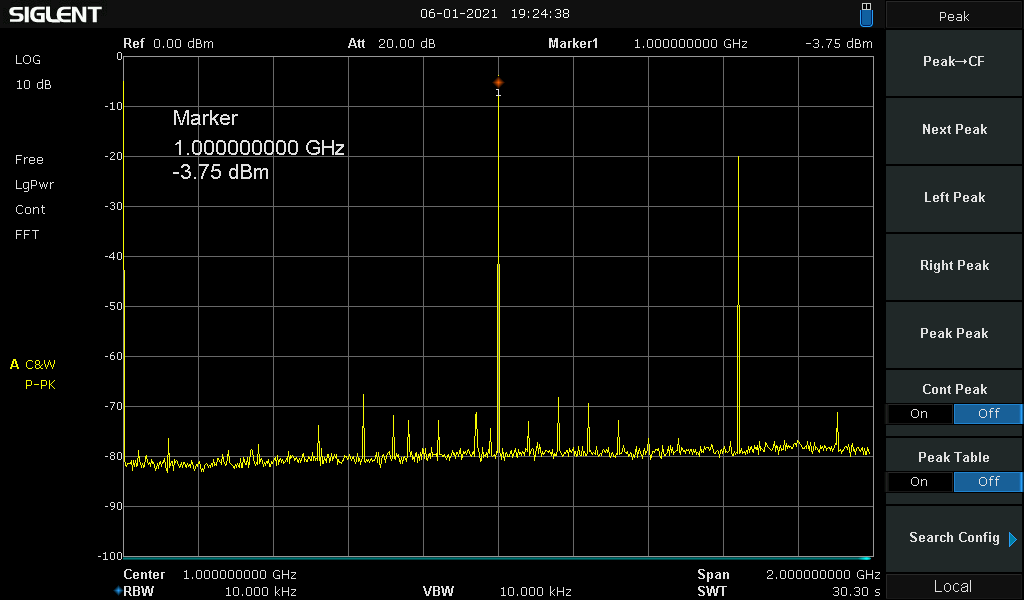
In this graph you can see the fundamental frequency of 1.0 GHz and its mirror harmonic at 1.64 GHz, so clocking occurs at a frequency of 2.64 GHz (2.64 – 1.0 = 1.64). By default, our board has an output LC low-pass filter with a cutoff frequency of 1.5 GHz, so it cannot completely suppress the mirror harmonic at a frequency of 1.64 GHz, and besides, it attenuates the level of the fundamental frequency at a frequency of 1 GHz by 4 dB. (On request, a ceramic filter with a different cutoff frequency and with lower losses can be installed)
Operating Manual
If you have ANY questions, PLEASE ASK us.
Shipping and Return information
All Items are shipped from Ukraine
Via International registered Airmail
Shipments are made within 1 business day
After the payments are received and verified
It takes about 4-7 days via UPS Express delivery
It takes about 10-18 days via Standard shipping
It takes about 35-45 days via Economy shipping
We combine multiple Items to save on shipping
UPS Express Shipping time (recommended):
| Europe: | 3-5 days |
| Germany: | 3-5 days |
| USA, Canada: | 4-7 days |
| Asia, South America: | 5-7 days |
| Australia, New Zealand: | 5-7 days |
| Africa, Central America: | 5-7 days |
Standard Shipping time:
| Europe: | 10-12 days |
| Germany: | 10-12 days |
| USA, Canada: | 10-15 days |
| Asia, South America: | 10-18 days |
| Australia, New Zealand: | 12-18 days |
| Africa, Central America: | 12-18 days |
Economy Shipping time:
| Europe: | 25-30 days |
| Germany: | 25-30 days |
| USA, Canada: | 30-35 days |
| Asia, South America: | 35-45 days |
| Australia, New Zealand: | 45-55 days |
| Africa, Central America: | 45-55 days |
Return Policy
All Returns are accepted
- For Return you should contact Us within 14 Days after receiving the Item
- Refunds are made as Money back or Replacements (buyer’s choice)
- Return Shipments are paid by the buyer
- No restocking fees are charged
Customs Policy
We as a seller do not receive from the buyer any charges any sales taxes and handling fees.
In any case we are not responsible for Tax(VAT) or any other Import duties or any other equivalent fees that arises upon delivery.
Please consult with your local Customs legislation and visit your local Customs department or website before making any purchases.
Downloads
Shield DDS Board files repository: RF Shield AD9914 Series DDS Board
Shield AD9914 Series Firmware repository: AD9914 Shield RF Unit
Arduino Drivers repository: Shield DDS AD RF Units USB drivers
You may also like…
DDS AD9910 v2 Shield for Arduino RF Signal Generator AM/FM/SWEEP [600 MHz, @1.5 GHz Core Clock, Low Spurs, Low Harmonic]
DDS (Direct Digital Synthesis) Analog Devices AD9910 Shield for Arduino
This device is designed to ensure seamless integration with Arduino MEGA 2560
It does not require any extra wires or converters to work properly
For maximum performance we recommend Ultra-low noise reference oscillator RCLN1000
All functions of the DDS AD9910 are brought to the contacts from the Arduino MEGA
With this you can fully reveal all the capabilities of the DDS AD9910 Shield
PCB Design Schematics Case and Software made by GRA & AFCH$209.95 – $289.95 Select optionsRF Amplifier 8-2000 MHz, GAIN = 20 dB, P = +20 dBm MMIC MRFA89 SOT-89 [GOLD PLATED]
MRFA89 RF Amplifier
The board has RF MMIC Amplifier in SOT-89 package (TQP369185 by defaults)
Our MRFA89 RF Amplifier also includes input/output DC blocking capacitor,
RF choke, bypass capacitors and 5V regulators in DPAK package.
SMA connectors used for input/output.
Size of the PCB 45x30mm, FR-4 material, double-sided with solid plated ground plane on the back.$19.95 Add to cartDIY KIT for DDS AD9959 Arduino Shield RF Signal Generator 4 Synchronized DDS Channels [225MHz, @600 MHz Core Clock, Low Spurs, Low Harmonic]
DIY KIT for DDS (Direct Digital Synthesis) Analog Devices AD9959 4 Synchronized DDS Channels
Arduino Shield Easy connection to Arduino MEGA 2560 without additional wires and converters
All functions of the DDS AD9959 are brought to the contacts of the Arduino MEGA
With this you can fully reveal all the capabilities of the DDS AD9959 Shield
PCB, Design, Schematics, Case and Software made by GRA & AFCH$219.95 – $299.95 Select optionsDIY KIT for DDS AD9910 Shield for Arduino RF Signal Generator AM/FM/SWEEP [600 MHz, @1.5 GHz Core Clock, Low Spurs, Low Harmonic]
DIY KIT for DDS (Direct Digital Synthesis) Analog Devices AD9910 Arduino Shield
Easy connection to Arduino MEGA 2560 without additional wires and converters
For maximum performance we recommend Ultra-low noise reference oscillator RCLN1000
All functions of the DDS AD9910 are brought to the contacts of the Arduino MEGA
With this you can fully reveal all the capabilities of the DDS AD9910 Shield
PCB Design Schematics Case and Software made by GRA & AFCH$199.95 – $279.95 Select optionsDDS AD9915 Arduino Shield RF Signal Generator [1GHz @3GHz Core Clock, Low Spurs, Low Harmonic]
DDS (Direct Digital Synthesis) Analog Devices AD9915
Arduino Shield Easy connection to Arduino MEGA 2560 without additional wires and converters
All functions of the DDS AD9915 are brought to the contacts of the Arduino MEGA
With this you can fully reveal all the capabilities of the DDS AD9915 Shield
PCB, Design, Schematics, Case and Software made by GRA & AFCH$599.95 – $679.95 Select options


